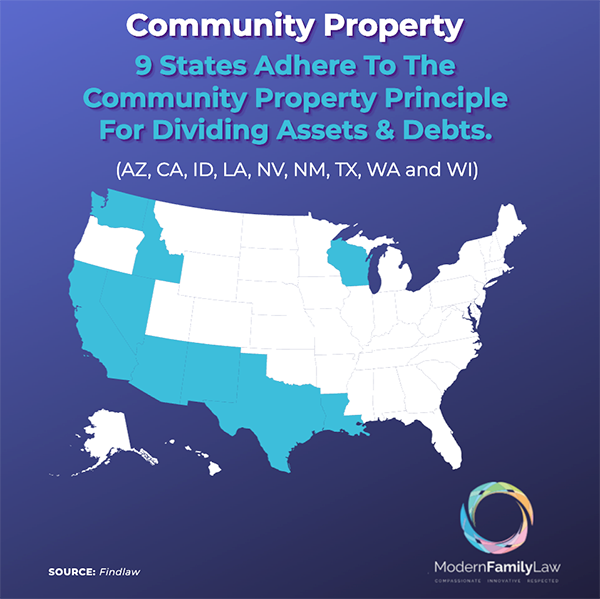What Is Community Property
Community property is a principle grounded in the belief that marriage is a partnership where both spouses contribute to the financial and emotional well-being of the relationship. Under this doctrine, the law treats most assets and debts acquired by either spouse during the marriage as collectively owned. This means that whether an asset was purchased by one spouse or both together, it is considered shared property, reflecting the collaborative nature of marriage.
This method of property division is guided by the principle of equity, aiming for a division that is fair but not strictly equal. The key here is the recognition that both partners contribute to the marriage in various ways, financially and otherwise, and this should be reflected in how assets are divided if the marriage ends. For instance, even if one spouse did not earn a salary, their role in the home, such as caregiving or managing the household, is valued as a contribution to the couple’s collective assets.
Contrasting with the equitable distribution model—applied in other states, where assets are divided based on what is deemed fair after evaluating each spouse’s financial situation, contributions, and future needs—community property simplifies the process by starting with the assumption of equal ownership. However, it’s important to note that certain types of property, such as inheritances or gifts given to one spouse, are generally excluded from this and remain the individual property of the recipient spouse.
In essence, the community property model acknowledges the partnership of marriage and seeks to dissolve it in a manner that respects the contributions of both parties, aiming for a balanced and fair division of the life they built together.






